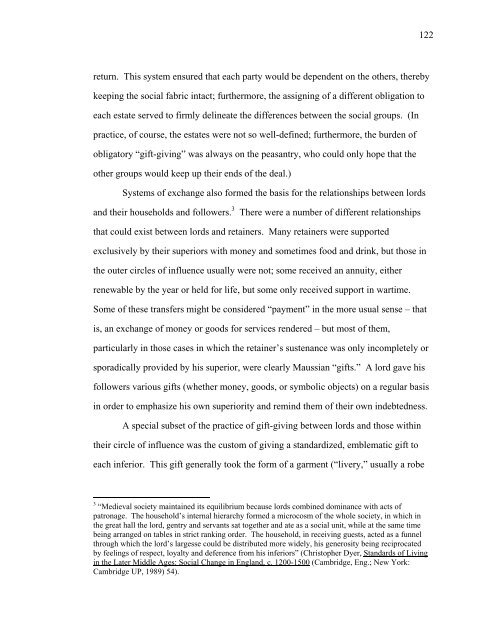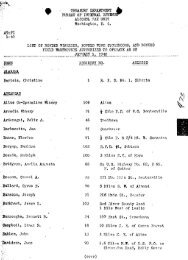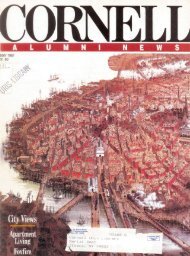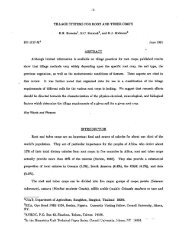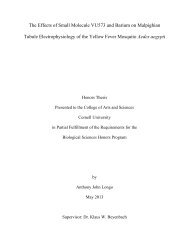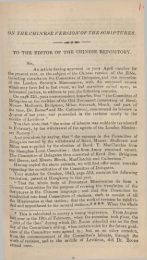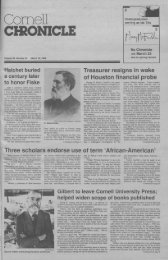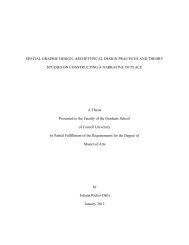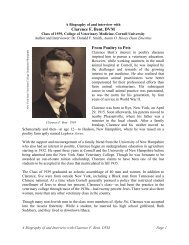Chapter 4 The Gift.pdf - eCommons@Cornell
Chapter 4 The Gift.pdf - eCommons@Cornell
Chapter 4 The Gift.pdf - eCommons@Cornell
Create successful ePaper yourself
Turn your PDF publications into a flip-book with our unique Google optimized e-Paper software.
eturn. This system ensured that each party would be dependent on the others, thereby<br />
keeping the social fabric intact; furthermore, the assigning of a different obligation to<br />
each estate served to firmly delineate the differences between the social groups. (In<br />
practice, of course, the estates were not so well-defined; furthermore, the burden of<br />
obligatory “gift-giving” was always on the peasantry, who could only hope that the<br />
other groups would keep up their ends of the deal.)<br />
Systems of exchange also formed the basis for the relationships between lords<br />
and their households and followers. 3 <strong>The</strong>re were a number of different relationships<br />
that could exist between lords and retainers. Many retainers were supported<br />
exclusively by their superiors with money and sometimes food and drink, but those in<br />
the outer circles of influence usually were not; some received an annuity, either<br />
renewable by the year or held for life, but some only received support in wartime.<br />
Some of these transfers might be considered “payment” in the more usual sense – that<br />
is, an exchange of money or goods for services rendered – but most of them,<br />
particularly in those cases in which the retainer’s sustenance was only incompletely or<br />
sporadically provided by his superior, were clearly Maussian “gifts.” A lord gave his<br />
followers various gifts (whether money, goods, or symbolic objects) on a regular basis<br />
in order to emphasize his own superiority and remind them of their own indebtedness.<br />
A special subset of the practice of gift-giving between lords and those within<br />
their circle of influence was the custom of giving a standardized, emblematic gift to<br />
each inferior. This gift generally took the form of a garment (“livery,” usually a robe<br />
3 “Medieval society maintained its equilibrium because lords combined dominance with acts of<br />
patronage. <strong>The</strong> household’s internal hierarchy formed a microcosm of the whole society, in which in<br />
the great hall the lord, gentry and servants sat together and ate as a social unit, while at the same time<br />
being arranged on tables in strict ranking order. <strong>The</strong> household, in receiving guests, acted as a funnel<br />
through which the lord’s largesse could be distributed more widely, his generosity being reciprocated<br />
by feelings of respect, loyalty and deference from his inferiors” (Christopher Dyer, Standards of Living<br />
in the Later Middle Ages: Social Change in England, c. 1200-1500 (Cambridge, Eng.; New York:<br />
Cambridge UP, 1989) 54).<br />
122


